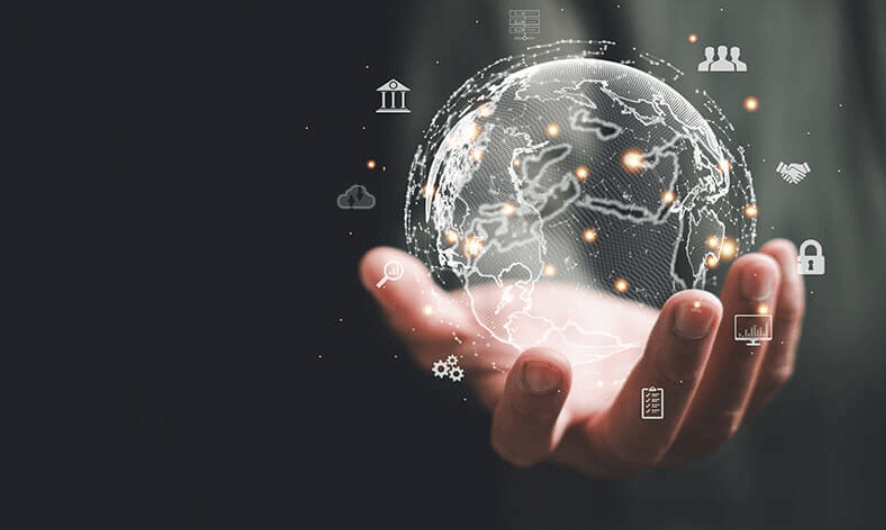Technology in 2025: Transforming the World Through Innovation

Technology is advancing at lightning speed, influencing every part of modern life. From how we work and learn to how we travel and communicate, innovation continues to shape the future. In 2025, developments such as artificial intelligence (AI), 5G networks, cloud computing, and green technology are not just trends—they are necessities. This article highlights the most important tech innovations of today, their impact, and what lies ahead.
Artificial Intelligence: The Power Behind Modern Progress
Artificial Intelligence has become one of the most revolutionary forces in technology. AI tools are being used across industries to improve efficiency, reduce costs, and provide personalized solutions.
- Healthcare: AI assists in early disease detection, robotic surgery, and personalized treatment.
- Business: Automation of repetitive tasks helps companies save time and resources.
- Daily life: Smart assistants like Alexa, Siri, and Google Assistant make homes more interactive.
With the rise of Generative AI, industries such as content creation, design, and education are being transformed, opening endless possibilities.
Cloud Computing: The Backbone of the Digital Economy
Cloud computing has changed the way businesses and individuals store and manage data. Instead of relying on local servers, companies use cloud platforms to operate more efficiently.
- Remote access: Teams collaborate from anywhere, ensuring seamless workflow.
- Cost-effective: Organizations pay only for the resources they use.
- Security: Encrypted systems protect sensitive business and customer information.
Major players like AWS, Google Cloud, and Microsoft Azure dominate the industry, continuously innovating to make cloud adoption easier and more reliable.
See also: Technology in 2025: Driving Innovation and Shaping the Future
Internet of Things (IoT): Smarter Connections
The Internet of Things (IoT) connects billions of devices worldwide, enabling smarter homes, cities, and industries.
- Smart homes: Devices like smart TVs, thermostats, and lights improve convenience and energy use.
- Healthcare: Wearable devices track health in real-time, giving doctors instant access to data.
- Industrial IoT: Factories use sensors to optimize production and reduce downtime.
As IoT expands, it is also powering smart cities, improving waste management, energy distribution, and transportation systems.
Cybersecurity: Protecting a Digital-First World
The rise of digital platforms has made cybersecurity more important than ever. Every year, cyberattacks grow in scale and complexity, targeting both individuals and corporations.
- Data security: Companies must safeguard customer data to maintain trust.
- Ransomware threats: Businesses are investing in stronger defenses to prevent financial losses.
- AI-powered protection: Intelligent tools identify and stop suspicious activity instantly.
Cybersecurity is expected to remain a top priority for governments and businesses, with investments rising into the trillions.
5G Technology: Building the Future of Connectivity
The rollout of 5G networks is reshaping global connectivity by delivering faster speeds, lower latency, and more reliable connections.
- Mobile experiences: High-definition video streaming and cloud gaming without lag.
- Smart infrastructure: Self-driving cars and connected devices depend on 5G.
- Remote innovation: Virtual reality classrooms, remote healthcare, and immersive experiences are made possible.
As 5G adoption spreads, it is paving the way for the metaverse, autonomous vehicles, and next-level IoT solutions.
Blockchain: Beyond Digital Currency
While blockchain is often linked to cryptocurrencies like Bitcoin, its applications reach far beyond finance.
- Supply chain transparency: Blockchain ensures authenticity in product tracking.
- Smart contracts: Automated digital contracts reduce costs and errors.
- Healthcare: Secure storage of patient data reduces the risk of tampering.
With the growth of Web3, blockchain will continue to fuel decentralized apps, NFTs, and digital ownership systems.
Green Technology: Innovation for Sustainability
Technology is not only about efficiency—it is also about protecting the planet. Green technology is becoming a priority worldwide.
- Clean energy: Solar, wind, and hydro power reduce dependence on fossil fuels.
- Electric vehicles (EVs): Companies like Tesla and BYD are pushing eco-friendly transportation.
- Smart grids: Advanced systems reduce energy waste and improve cost efficiency.
Green technology ensures that progress aligns with environmental goals, making innovation more sustainable.
Emerging Technologies to Watch
In addition to today’s trends, new technologies are on the horizon:
- Quantum computing: Solving problems too complex for traditional computers.
- Metaverse: Redefining social interaction, business, and entertainment.
- Biotechnology: Offering breakthroughs in healthcare and human longevity.
- Artificial General Intelligence (AGI): Machines that can think and reason like humans.
These future innovations will create opportunities but also raise ethical and regulatory challenges.
Conclusion
Technology in 2025 is driving unprecedented transformation. From AI and cloud computing to 5G, IoT, and blockchain, innovations are shaping industries, economies, and societies. However, with this progress comes responsibility—particularly in areas like cybersecurity and sustainability.
The future will favor those who adapt quickly and embrace change. By leveraging technology responsibly, businesses and individuals can create smarter, safer, and greener solutions. One thing is certain: technology will remain the backbone of progress, connecting today’s challenges with tomorrow’s opportunities.





